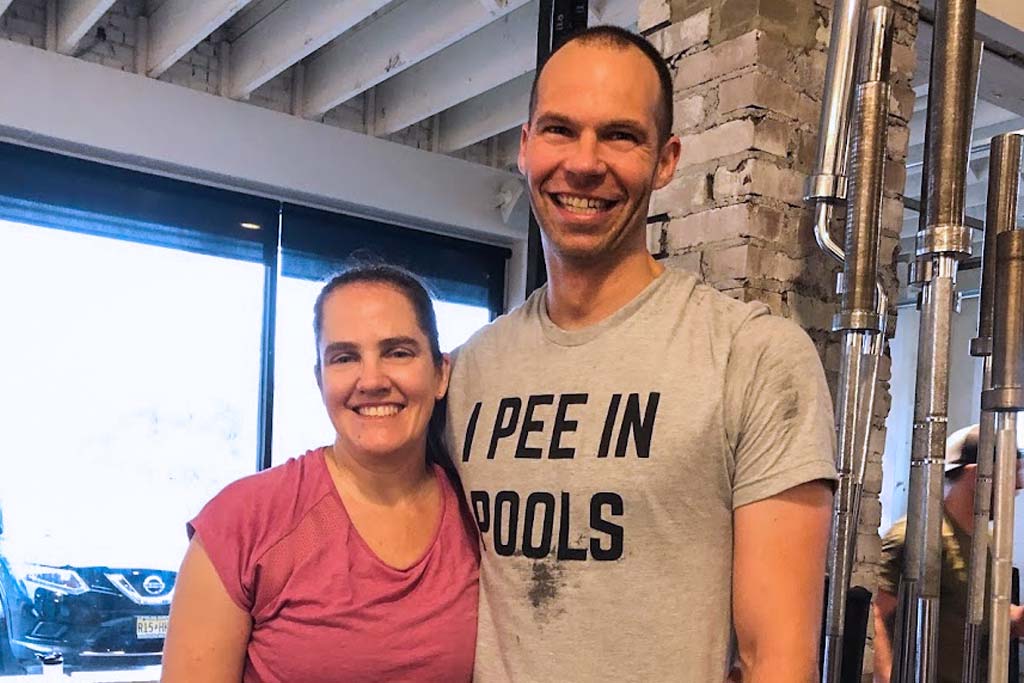SKILL
12-11-10-9-8 unbroken strict pull-ups (6 of 6)
WOD
5 rounds of 3 mins on / 1 min off of…
5 Russian swings (35/26)
5 kb front squats (35/26)
5 kb push presses (35/26)
… alternate arms and start with the right.
HELPFUL INFO
Most people in their young-adult to mid-life years aren’t necessarily thinking about how to take care of their brain. It’s probably working just fine. However, investing in brain health as early as possible is becoming more and more important for building a lifetime of wellness. Currently in the U.S., someone is diagnosed with Alzheimer’s disease every 65 seconds; that statistic is expected to intensify to every 33 seconds by 2050.
Fortunately, science is identifying more ways to build brain longevity for a long, healthy life. Just like investing wisely for retirement, investing in your brain health now is a vital game-changer for your future.
Begin with these three simple ways to build brain health:
1. EAT MOSTLY FRUIT AND VEGETABLES
You know you need to eat more produce for physical health reasons, but fruits and vegetables could also protect your brain. Research has begun to confirm a higher intake of fruits and vegetables is correlated to brain health including a lower risk for Alzheimer’s and a protective effect against depression. One of the specific reasons this connection is believed to exist is due to the polyphenols abundant in many types of produce. Polyphenols have anti-inflammatory properties that may help protect the brain from cognitive decline.
In addition, B-vitamins, particularly folate and B6, commonly found in fruits and vegetables seem to have a connection to mental health. Research has found a higher intake of these vitamins produced improved cognitive performance and reduced loss of brain tissue associated with aging. Conversely, low folate levels have been associated with a risk of depression.
Knowing you need to eat more fruits and vegetables for brain health is one thing, but actually doing it is another issue. As long as you’re moving toward a higher intake, know that you can make improvements over time.
Make it simple for yourself by reaching for a handful of blueberries every day. Blueberries are a good source of vitamin C, providing 15% of the daily recommended value in one serving (a handful or a cup). Vitamin C is an antioxidant that protects cells from damage caused by oxidative free radicals. Recent research published in the European Journal of Nutrition found that daily consumption of the equivalent of one cup of fresh blueberries, given as 24g of freeze-dried powder, showed positive changes in cognitive function over a placebo. “While more evidence is needed, results of this study add to the body of research on blueberry-supplemented diets and positive outcomes in cell and animal research on age-related cognitive decline,” said Barbara Shukitt-Hale, Ph.D., one of the study’s lead investigators.
2. TRY EGGS, CHICKEN AND LIMA BEANS
One of the newest players on the brain scene is choline, an essential nutrient with a strong connection to mental health. Choline is required for neurotransmitters found in the brain to work at their peak, aiding memory retention and cognitive development. It could be so crucial to brain performance that it could potentially help restore age-related cognitive function in healthy individuals.
Here’s the problem, though: National data show 90% of Americans are not getting enough choline through their diet. This could have a significant impact on brain health population-wide and it’s rather easy to fix. First, look to food sources including whole eggs, lima beans, chicken, wheat germ and Brussels sprouts. Eating these foods daily can help tick you toward the recommended daily intake (RDI) of 550mg a day, although it is difficult to meet choline needs through food alone. It’s worthy to note the new Nutrition Facts label calls for voluntarily labeling choline because the FDA has recognized its many health benefits.
In addition to including food sources of choline as part of a healthy eating pattern, it may also be important to supplement with choline to ensure intake needs are met.
3. KNOW YOUR VITAMIN D STATUS
Vitamin D is a nutrient that has gained much attention in the past decade as its connection to overall health is uncovered. Brain health is no exception and observational research has discovered low blood levels of vitamin D were found in Alzheimer’s patients. In addition, a correlation of low risk for Alzheimer’s disease was associated with a higher dietary intake of vitamin D. One possible explanation for this connection is vitamin D plays a role in nerve health in the brain.
While this research is not rock solid yet, it does suggest a powerful connection to brain longevity. Interestingly, most people do not have their vitamin D levels checked in their annual blood work.
At your next annual exam, talk to your physician about getting your vitamin D levels checked. Blood levels less than 50 nmol/L are considered inadequate and 30 nmol/L or less deemed deficient.
Vitamin D is created by unprotected sun exposure on your skin, but that should be limited to no more than 2–3, 15 minute sessions a week. Depending on where you live, you might not ever receive adequate sun exposure to synthesize enough vitamin D. There are food sources of vitamin D that you can incorporate into your daily eating routine. Choosing “fatty” fish like salmon, tuna and mackerel, egg yolks and mushrooms. Beyond that you may need to take a vitamin D supplement, but talk to your health care provider first as it requires monitoring and retesting.








